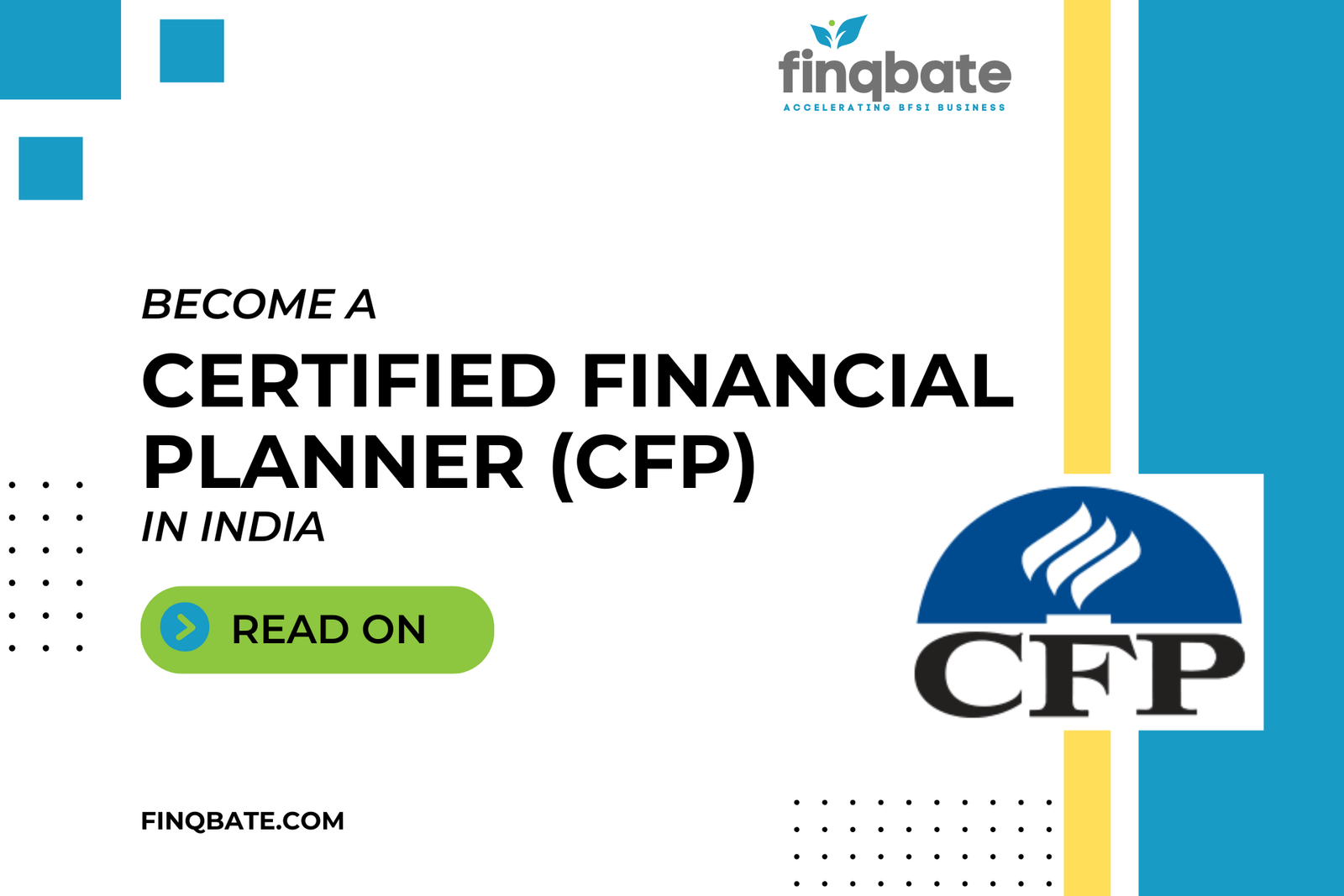How to Become a Certified Financial Planner (CFP) in India
Earning the CFP certification in India can open doors to rewarding career opportunities in financial advisory, wealth management, and financial planning.
Financial planning is one of the fastest-growing professions globally, and India is no exception. The Certified Financial Planner (CFP) designation is widely recognized as a benchmark for excellence in personal financial planning. Earning the CFP certification in India can open doors to rewarding career opportunities in financial advisory, wealth management, and financial planning. Here's a step-by-step guide to becoming a CFP in India.
What is CFP Certification?
The Certified Financial Planner (CFP) certification is a globally recognized credential awarded by the Financial Planning Standards Board (FPSB). It signifies a high level of expertise in financial planning, including investment planning, retirement planning, tax planning, estate planning, and insurance.
In India, the CFP certification is overseen by the Financial Planning Standards Board India (FPSB India). It ensures that professionals adhere to global standards of excellence in financial planning.
Why Become a CFP?
Becoming a CFP has several advantages:
Global Recognition: The CFP certification is recognized in over 26 countries.
Career Advancement: It enhances your credibility and opens up opportunities in wealth management, financial advisory, and insurance.
Skill Development: You gain comprehensive knowledge of financial planning strategies.
Client Trust:The certification builds trust and credibility with clients.
Eligibility Criteria to become a Certified Financial Planner (CFP)
To pursue the CFP certification in India, you need to meet the following eligibility requirements:
1. Educational Qualification: A bachelor's degree (in any discipline) is mandatory. However, individuals in the final year of their graduation can also apply.
2. Work Experience:
- Regular Pathway: No prior work experience is required.
- Challenge Status Pathway: For experienced professionals like CA, CFA, or MBA in finance, at least 3 years of relevant work experience is required.
Pathways to CFP Certification
The CFP certification can be pursued through two pathways:
1. Regular Pathway: Designed for fresh graduates or individuals without significant prior experience in financial planning.
- Complete the education program offered by FPSB’s authorized education providers.
- Clear the CFP exam.
- Accumulate the required work experience.
2. Challenge Status Pathway: Designed for experienced professionals like Chartered Accountants (CA), Certified Public Accountants (CPA), Chartered Financial Analysts (CFA), or MBAs in finance.
- Skip the education program and directly attempt the CFP exam.
- Provide proof of relevant work experience.
Steps to Become a CFP in India
Step 1: Enroll in the FPSB Program
Register with the Financial Planning Standards Board India (FPSB India) to start your CFP journey. Choose between the Regular Pathway or the Challenge Status Pathway based on your eligibility.
Step 2: Complete the Education Program
If you opt for the Regular Pathway, enroll in an FPSB-authorized education provider’s program. This program covers key modules such as:
- Principles of Financial Planning
- Risk Analysis and Insurance Planning
- Retirement Planning
- Investment Planning
- Tax and Estate Planning
Step 3: Pass the CFP Exam
The CFP exam is conducted by FPSB and is divided into multiple modules. The final exam, known as the Integrated Financial Planning module, tests your ability to create comprehensive financial plans. Preparing for this exam requires thorough understanding and practice.
Step 4: Gain Relevant Work Experience
To obtain the certification, you need to demonstrate at least 3 years of relevant work experience in financial planning. For the Challenge Status Pathway, this experience must be pre-existing.
Step 5: Adhere to the Code of Ethics
As a CFP professional, you must agree to abide by FPSB’s Code of Ethics and Professional Responsibility, which emphasizes integrity, competence, and diligence.
Step 6: Obtain Your Certification
Once you meet all the requirements—education, exam, work experience, and ethical adherence—you will be awarded the CFP certification. You’ll also need to renew your certification annually by completing Continuing Professional Development (CPD) activities and paying the renewal fee.
Cost of CFP Certification in India
The cost of earning the CFP certification varies depending on the pathway and education provider. On average:
- Education Program Fees: INR 40,000 – INR 60,000
- Exam Fees: Around INR 10,000 per module
- Certification Fee: Approximately INR 10,000 annually
Career Opportunities for CFP Professionals
CFP-certified professionals are in high demand across various sectors, including:
- Wealth Management Firms
- Financial Advisory Companies
- Banks and Insurance Companies
- Investment Advisory Services
Tips for Success
- Plan Your Study Schedule: Allocate dedicated time for studying each module.
- Take Practice Exams: Familiarize yourself with the exam format and question types.
- Stay Updated: Keep track of updates in financial laws, tax policies, and market trends.
- Network: Join financial planning forums and connect with industry professionals.
Conclusion
Becoming a Certified Financial Planner in India is a rewarding journey for anyone passionate about financial planning and advisory. The CFP designation not only enhances your knowledge and skills but also boosts your professional credibility. By following the steps outlined above, you can embark on a fulfilling career in financial planning and make a meaningful impact on your clients’ financial well-being.

